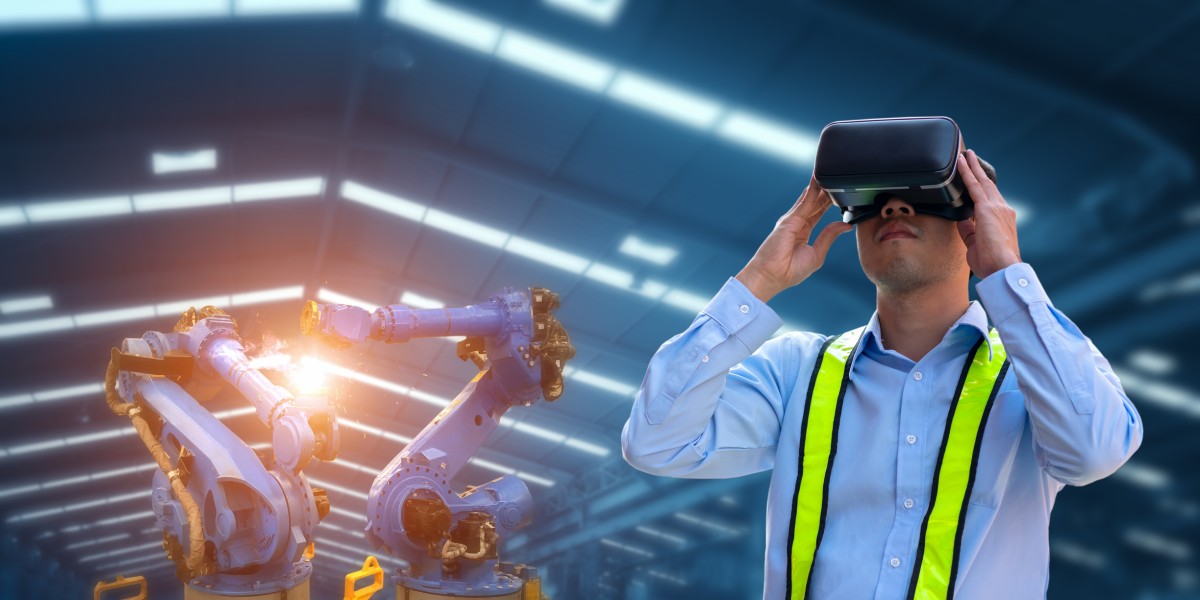Is the Metaverse a new frontier for human-centric manufacturing?
The future of manufacturing is not just about machines and AI; it's about re-empowering humans, according to a new study from the University of Surrey.

The integration of advanced technologies like augmented reality (AR) and digital twins is set to redefine the workforce's role, making humans an essential part of the manufacturing equation once again.
The paper, published in Sustainability, explores the transformative potential of Metaverse technologies within manufacturing, focusing on how augmented reality, virtual reality, and digital twin systems can enhance human interaction with automated processes.
The research team examined over 130 published articles from 2010 to 2024, analysing the evolution of Metaverse applications in manufacturing settings. By filtering through these works, they identified key trends, challenges, and opportunities that have emerged as this technology has developed.
The findings indicate that while technologies like augmented reality and digital twins are becoming increasingly prevalent, several barriers hinder their widespread adoption. Issues such as accuracy, data interoperability, and the need for skilled personnel pose significant challenges to manufacturers eager to embrace these innovations. The study advocates for strategic frameworks to overcome these obstacles, including fostering employee training and enhancing collaboration between human workers and advanced robotics.
Dr Wolfgang Garn, co-author of the study and Senior Lecturer in Analytics at the University of Surrey, said:
"We're on the cusp of a revolution where technology is not merely a replacement for human effort but a collaborative partner that amplifies our capabilities. Imagine a factory floor where workers and robots are not competing, but in synergy, creating products with unprecedented efficiency and creativity."
Augmented Reality (AR) is a technology that overlays digital information, such as images, sounds, or data, onto the real world, typically through devices like smartphones, tablets, or AR glasses. It enhances the user's perception of their environment by blending virtual elements with physical surroundings, enabling interactive and immersive experiences for applications like gaming, education, and industry.
Digital twins are virtual representations of physical objects, systems, or processes that are updated in real-time using data from their real-world counterparts. These digital replicas allow for simulation, analysis, and monitoring, enabling organisations to optimise performance, predict issues, and test scenarios without affecting the actual object or system.
Dr Garn continued:
"This isn't just about technology for technology's sake. It's about creating a manufacturing environment that values human insight and creativity. By harnessing the power of the Metaverse, we can not only improve productivity but also enrich the work experience for individuals."
"By integrating Metaverse technologies into manufacturing, companies can streamline design processes, enhance quality control, and optimise maintenance practices. This revolution is not just about increased efficiency; it promises to create a more engaged workforce where employees are empowered to contribute to the creative and decision-making processes.
The message is clear: the Metaverse is not merely a virtual playground but a vital space where the human touch can reshape the future of manufacturing for the better."
The research underscores the potential of the Metaverse to facilitate remote collaboration, allowing geographically dispersed teams to work together in real-time. This capability is particularly vital as industries grapple with the ongoing challenges posed by global disruptions and changing consumer demands.
[ENDS]
Note to editors:
- Dr Wolfgang Garn is available for interview; please contact mediarelations@surrey.ac.uk to arrange.
- Vivian Egbengwu is also a co-author of the research study
- The full paper is available in the journal of Sustainability
Related sustainable development goals



Featured Academics
Media Contacts
External Communications and PR team
Phone: +44 (0)1483 684380 / 688914 / 684378
Email: mediarelations@surrey.ac.uk
Out of hours: +44 (0)7773 479911

